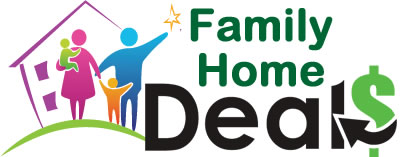
Leaving your home unattended requires a bit of planning to avoid problems like security issues or unexpected maintenance issues. A well-thought-out checklist helps you cover all the bases, ensuring that your home remains safe, secure, and well-maintained while you’re away.
By following a detailed checklist, you can ensure that you haven’t overlooked any important tasks, such as stopping your mail delivery or adjusting your thermostat. This approach not only protects your home but also provides peace of mind, letting you focus on enjoying your vacation rather than stressing over things you may have forgotten.
Vacation Home Preparation Checklist: Your Step-by-Step Guide
Preparing your home for a vacation involves more than just packing your bags. It’s about ensuring your property remains safe and well-maintained while you’re away. Here’s an expanded checklist to guide you through every step of getting your house ready for your absence.
1. Secure Your Home
Lock All Doors and Windows
- Double-Check Security: Go beyond simply locking doors and windows. Ensure that all sliding doors have proper locks and that any window air conditioning units are secured. Check the condition of weather stripping and ensure it is intact to prevent easy entry.
- Upgrade Locks: In addition to installing deadbolts, consider adding smart locks that offer additional features like remote access and activity logs. These can provide extra peace of mind and allow you to monitor access to your home even while you’re away.
- Use Window Bars: For enhanced protection, particularly in homes with ground-level windows or easily accessible areas, install window bars or security film. Window bars should be professionally installed to ensure they’re secure and meet local building codes. Security film can be applied to existing glass to make it more resistant to shattering.
Set Up Timed Lights
- Install Timers: Use programmable timers with a range of settings to vary lighting patterns. Avoid predictable patterns, as these can signal to burglars that no one is home. Opt for timers that allow you to set multiple on/off cycles to mimic your usual presence.
- Consider Smart Lighting: Smart lighting systems not only allow you to control lights remotely but also offer features like geofencing, which can turn lights on automatically when you’re close to home. Look for systems that integrate with your smartphone or home automation system for greater convenience.
Inform a Trusted Neighbor or Friend
- Keep Them Informed: Provide your neighbor or friend with a comprehensive set of instructions, including where to find spare keys, how to contact local emergency services, and the names of any service providers or contractors who might need to be contacted (e.g., lawn care or maintenance services). Share your itinerary and contact information so they can reach you easily if needed.
- Arrange for Regular Check-ins: Ask your neighbor or friend to perform regular inspections of your property. Provide a checklist of things to look out for, such as signs of tampering, unusual activity around the house, or any maintenance issues that may arise. Arrange for them to contact you immediately if they notice anything out of the ordinary.
2. Manage Home Maintenance
Clean the House
- Deep Clean:
- Vacuum and Dust: Thoroughly vacuum all carpets and rugs to remove dust and allergens. Dust surfaces, including shelves, picture frames, and baseboards, to prevent build-up.
- Mop Floors: Mop hard floors with an appropriate cleaner to remove grime and stains. Pay special attention to high-traffic areas and any spots that may have been missed in regular cleaning.
- Clean Windows and Mirrors: Wipe down windows, mirrors, and other glass surfaces to remove smudges and dirt, ensuring they are spotless and allowing natural light to brighten your home.
- Clean and Organize Storage Areas: Tidy up closets, cabinets, and storage spaces to ensure they’re organized. This helps identify any items that may need attention or could be problematic if left unattended.
- Empty Trash Bins:
- Dispose of Trash: Ensure all trash and recycling bins are emptied and cleaned. Remove any food scraps or waste to prevent odors and attract pests like rodents and insects.
- Refrigerator Cleaning: Clear out old or expired food items from the refrigerator and freezer. Wipe down shelves and bins to prevent odors and mold growth. Check for any spills or leaks and clean them up.
Adjust the Thermostat
- Energy Saving Mode:
- Set Optimal Temperature: Adjust your thermostat to a temperature that balances energy efficiency with comfort. Generally, setting it between 55-60°F (13-15°C) in colder months is sufficient to keep your home from freezing without excessive energy use.
- Program Thermostat: If your thermostat is programmable, set it to lower the temperature during the day and raise it slightly before you return to ensure a comfortable environment upon your return.
- Prevent Frozen Pipes:
- Keep Temperature Above Freezing: In colder climates, maintain a temperature that prevents pipes from freezing. This is crucial for areas like basements, attics, and unheated rooms.
- Pipe Insulation: Insulate exposed pipes with foam covers or heat tape, especially in unheated or vulnerable areas. This helps keep them warm and reduces the risk of freezing.
Turn Off Water Supply
- Main Water Valve:
- Turn Off Water Supply: If you’re leaving for more than a week, turn off the main water valve to prevent potential leaks or water damage. This is particularly important if you’re traveling during colder months when freezing temperatures could cause pipes to burst.
- Label the Valve: Ensure that the main water valve is clearly labeled and easily accessible to anyone who might need to turn it back on in your absence.
- Drain Pipes:
- Flush Pipes: For very long absences, consider draining your pipes by opening faucets and flushing toilets to remove any residual water. This reduces the risk of water freezing and causing damage.
- Turn Off Appliances: Shut off and drain appliances connected to the water supply, such as washing machines and dishwashers, to prevent leaks and flooding.
Check for Leaks
- Inspect Plumbing:
- Under Sinks: Check the area under sinks for any signs of leaks or moisture. Tighten any loose connections and replace any worn washers or seals.
- Around Toilets: Inspect toilets for signs of leaks or instability. Ensure that the tank and bowl are securely fastened and that there are no water stains around the base.
- Examine Appliances:
- Washing Machines: Check hoses and connections for any signs of wear or leaks. Tighten connections and replace old hoses if necessary.
- Dishwashers: Inspect the dishwasher for leaks around the door seals and hoses. Make sure the drain is clear and functioning properly.
3. Take Care of Mail and Deliveries
Hold Mail Delivery
- Contact Postal Service: Request a hold on your mail through your local postal service. You can usually do this online or by visiting the post office.
- Digital Options: Some postal services offer digital mail options where you can view incoming mail online.
Stop Newspaper Delivery
- Suspend Subscriptions: Contact your newspaper service to suspend delivery during your absence. This prevents piles of newspapers from accumulating, which can signal an empty house.
- Adjust Delivery Schedule: For other regular deliveries (like groceries), either pause or reschedule them.
4. Ensure Safety and Security
Secure Valuables
- Use a Safe: Store important documents, jewelry, and other valuables in a safe or locked drawer. Avoid keeping them in obvious or easily accessible places.
- Consider a Safe Deposit Box: For highly valuable items, consider using a safe deposit box at a bank for extra security.
Unplug Electronics
- Reduce Fire Risk: Unplug non-essential electronics to reduce the risk of electrical fires and save on energy bills. This includes items like chargers, small appliances, and entertainment systems.
- Power Strips: Use power strips with surge protectors for devices that need to remain plugged in, and turn them off when not in use.
Check Smoke and Carbon Monoxide Detectors
- Test Detectors: Ensure smoke and carbon monoxide detectors are functioning properly. Replace batteries if necessary and check that detectors are not expired.
- Maintain Detectors: Clean detectors to remove dust and debris, which can interfere with their operation.
5. Prepare for Emergencies
Leave Contact Information
- Emergency Contacts: Provide your emergency contacts and a way to reach you to the person watching your home. This ensures they can quickly get in touch if any issues arise.
- Detailed Instructions: Leave instructions on how to handle common problems, such as how to turn off the water supply or contact a repair service.
Backup Keys
- Trusted Person: Leave a spare key with a trusted friend or neighbor. Avoid hiding keys in obvious places like under doormats or flower pots.
- Keyless Entry: If using a keyless entry system, share the access code with your emergency contact and change it upon your return.
6. Manage Your Plants and Pets
Arrange for Pet Care
- Pet Sitters: Hire a reliable pet sitter or arrange for boarding if necessary. Provide detailed care instructions, including feeding schedules, medical needs, and exercise routines.
- Emergency Vet Info: Share the contact information of your veterinarian and any medical details with the pet sitter.
Water Plants
- Self-Watering Systems: Use self-watering systems or irrigation timers to ensure your plants receive adequate water while you’re away.
- Plant Care Instructions: If someone is taking care of your plants, provide clear instructions on watering frequency and any special care they may need.
7. Finalize Packing and Travel Preparations
Check Travel Documents
- Essential Papers: Confirm that you have all necessary documents, including passports, travel tickets, and accommodation confirmations. Keep them in a safe and easily accessible place.
- Visa Requirements: Check if you need a visa or any additional paperwork for your destination and ensure it’s ready.
Double-Check Your Itinerary
- Verify Arrangements: Confirm all travel and accommodation arrangements, including flight times, hotel reservations, and car rentals.
- Pack Essentials: Make a packing list to ensure you bring all necessary items, such as medications, chargers, and appropriate clothing.
Set Up Out-of-Office Notifications
- Email Notification: Set up an out-of-office auto-reply for your email to inform colleagues or clients of your absence and provide an alternative contact if needed.
- Phone Voicemail: Update your voicemail message to let callers know that you’re away and when they can expect a response.
Enjoy your trip without worrying
Preparing your home for vacation doesn’t have to be overwhelming if you follow a well-organized checklist. By securing your home, managing maintenance, handling mail and deliveries, ensuring safety, and preparing for emergencies, you can enjoy your trip without worrying about your property back home. A little planning goes a long way in making your vacation as relaxing as possible.
So, next time you’re gearing up for a getaway, use this vacation home preparation checklist to ensure you’ve covered all the necessary steps. With everything in place, you’ll be free to focus on your adventures and return to a home that’s just as you left it.
Trivago will do the searching. You do the saving.
 Trivago, a leading global hotel search platform, simplifies the process of finding the perfect accommodation for travelers worldwide. With its user-friendly interface and comprehensive database of hotels, Trivago enables users to compare prices from various booking sites, ensuring they secure the best deal for their desired stay. Visit trivago.com for a seamless booking experience, helping travelers make informed decisions and embark on memorable journeys with confidence.
Trivago, a leading global hotel search platform, simplifies the process of finding the perfect accommodation for travelers worldwide. With its user-friendly interface and comprehensive database of hotels, Trivago enables users to compare prices from various booking sites, ensuring they secure the best deal for their desired stay. Visit trivago.com for a seamless booking experience, helping travelers make informed decisions and embark on memorable journeys with confidence.



